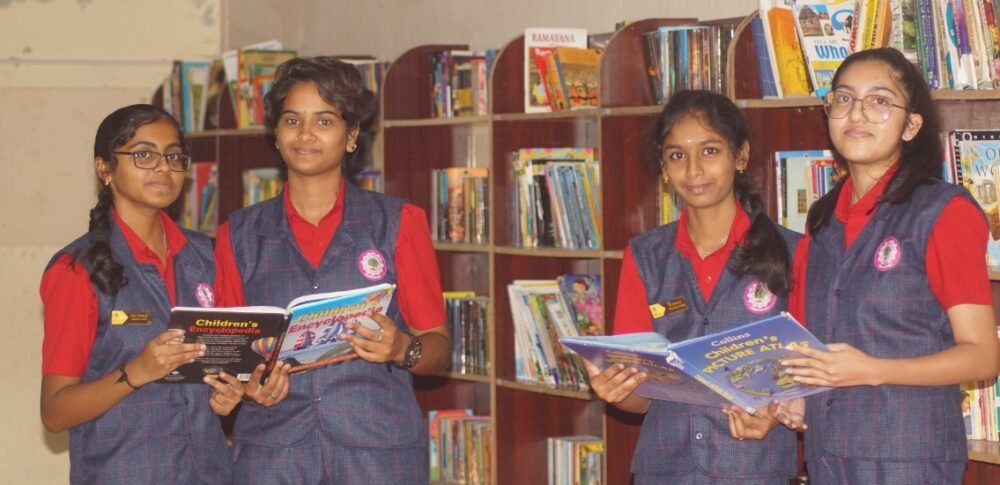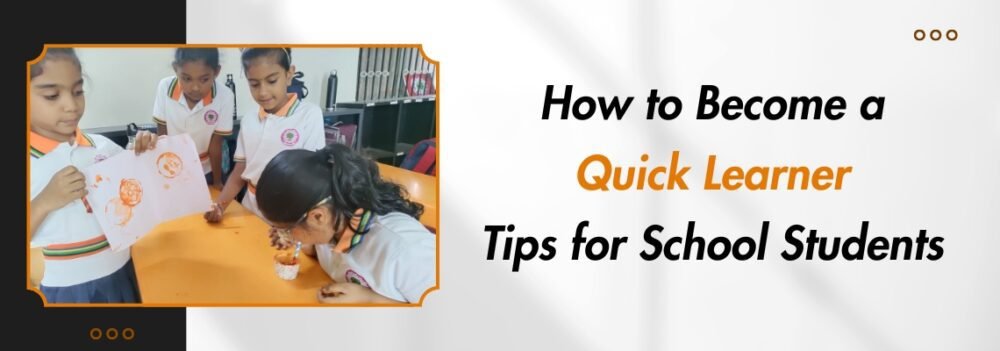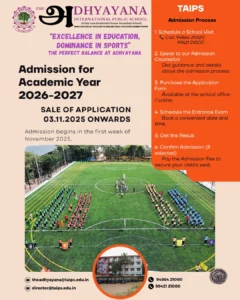Tips for quick learners help students pick up new ideas faster and feel more confident in school. Developing the ability to learn quickly doesn’t require special talent; it comes down to using simple methods and good habits every day. With the right approach, you can turn study time into a more active and rewarding experience. Here are practical ways for school students to become quick learners and make the most of their classroom moments.
Understand Your Learning Style
Everyone absorbs information in different ways. Some students remember facts better when they see diagrams or charts, while others grasp ideas more easily by listening or moving. Spend some time noticing how you study best. If drawing mind maps helps you recall history dates, use more visuals in your notes. If talking through ideas out loud aids your memory, explain new topics to a friend or record yourself summarizing lessons. Matching your study methods to how you naturally learn makes each study session more efficient.
Set Small, Clear Goals
Breaking down big tasks into smaller steps makes any subject feel less overwhelming. Instead of aiming to “study biology,” set a goal like “review the process of photosynthesis today.” Clear objectives help you focus on one thing at a time and give you small wins that boost your motivation. Write down these mini-goals at the start of each study session. As you tick them off, you’ll see progress, and your confidence will grow, making it easier to keep up your momentum.
Use Active Reading Techniques

Active reading keeps your mind engaged instead of simply gliding over the words. When you read a chapter, pause every few paragraphs to ask yourself what you just learned. Try summarizing each section in your own words or highlighting key ideas in a different color. You can also write questions in the margins and then test yourself later. This back-and-forth between reading and reflection helps information stick in your mind more firmly.
Practice Regularly and Review
Learning new material once isn’t enough to make it stick. Schedule short, frequent review sessions instead of long cramming marathons. For example, spend ten minutes each day going over vocabulary or math formulas you learned last week. Regular review keeps your brain fresh on older material while you add new ideas. Over time, this spaced practice builds a strong foundation that lets you learn faster and recall information more easily.
Ask Questions and Take Part in Class
Active participation in class helps you learn as the lesson unfolds. Don’t hesitate to raise your hand when something isn’t clear or if you want to hear another example. Asking questions shows your teacher exactly where you need more help and keeps you alert during lectures. If you’re shy, start by jotting down questions and asking your teacher after class or in a message. Engaging with the material in real time sharpens your understanding and reduces the need for lengthy review sessions later.
Explain Ideas to Others
Teaching friends or family members is a powerful way to solidify your own knowledge. When you put a concept into your own words for someone else, you uncover any gaps in your understanding. You can host a mini-study group or simply chat with a sibling about what you learned. The process of organizing your thoughts and answering questions reinforces the material, making it easier to remember on tests and in future lessons.
Manage Your Time Wisely
Good time management makes room for both study and rest. Start by keeping a study diary or using a planner to record assignments, test dates, and revision sessions. Allocate specific time blocks for each subject based on how challenging you find it. Tackling harder topics when you are most alert—often in the morning or after a refreshing break—helps you learn more quickly. Avoid multitasking by turning off notifications and focusing on a single subject during each session.
Take Breaks and Stay Refreshed
Short breaks are not wasted time; they help your brain process and store new information. Follow the “50-10 rule”: study for fifty minutes, then rest for ten. Use your breaks to stretch, grab a healthy snack, or step outside for fresh air. These pauses reduce mental fatigue and keep you alert for the next round of study. Over time, you’ll find that regular breaks boost both your speed and the quality of your learning.
Stay Curious and Open-Minded
A curious mind is more eager to learn. Whenever you encounter a topic that sparks your interest, dive in with extra reading or look for related videos or articles. Curiosity turns studying into an exploration, making new ideas more memorable. Even in subjects you find tough, try to uncover one interesting fact or story that makes the material feel more personal. This small shift in attitude can make learning feel less like work and more like discovery.
Reflect on Your Progress
Every few weeks, take time to look back on what you have learned and how you approached your studies. Ask yourself what worked well and what could use a change. Maybe you find that studying in a group helps you stay motivated, or perhaps you learn faster with flashcards. Use these insights to adjust your methods and keep improving. Reflection helps you become more aware of your own strengths and areas where you can grow.
As you use these methods, you’ll notice that learning new topics becomes faster and more enjoyable. With clear goals, active habits, and regular reflection, you can build strong study routines that work for you. Remember, being a quick learner isn’t about raw talent—it’s about smart strategies and steady practice. Every student has the ability to pick up ideas faster when they work with their own style and keep a curious mindset. Keep at it, and you’ll find yourself mastering subjects more quickly than you ever imagined.
In the end, success in school comes from steady effort and thoughtful habits. By using these tips and staying consistent, you can become the quick learner you aim to be at TAIPS (The Adhyayana International Public School), CBSE Schools In Coimbatore.


